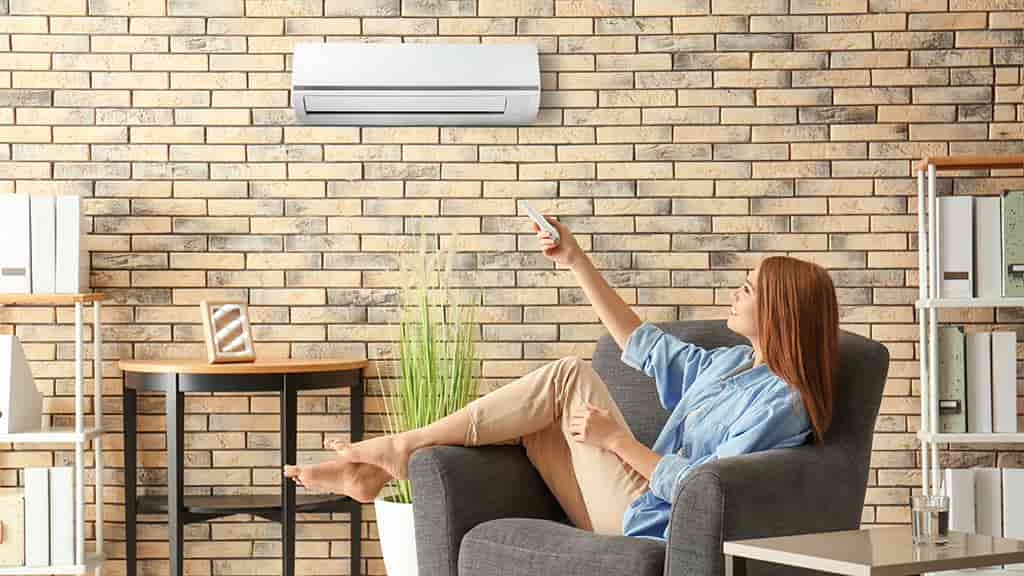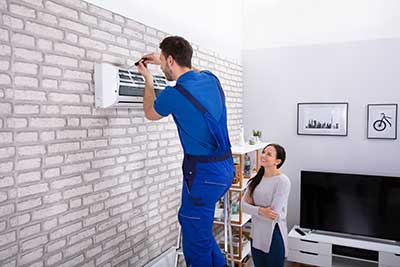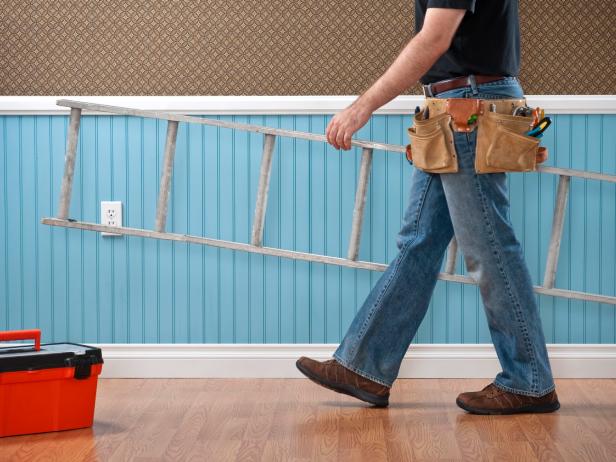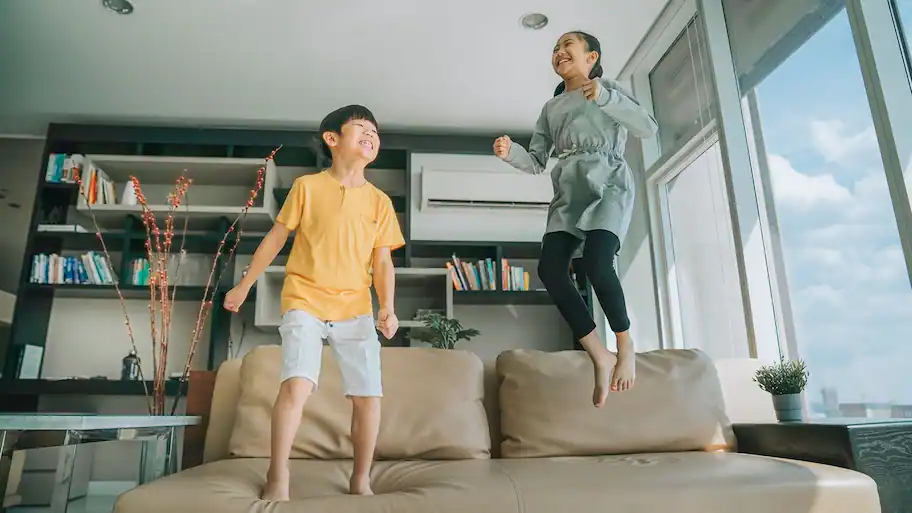Are you starting to feel like your HVAC system is just not cutting it anymore? We all know how crucial a reliable and efficient heating, ventilation, and air conditioning system is, especially in our lovely California climate. If you’ve been experiencing persistent issues like frequent breakdowns, rising energy bills, uneven cooling or heating, and strange noises emanating from your HVAC unit, it might be a telling sign that it’s time to consider a replacement. Don’t fret; upgrading to a new system can bring you a host of benefits, such as improved energy efficiency, better indoor air quality, and enhanced comfort for you and your family. Discover the signs for HVAC replacement in Santa Rosa. Trust Concept Design Develop INC. for expert solutions and services.
Benefits by replacing your HVAC system in Santa Rosa:
So, let’s explore your options and make sure you stay cool during those hot summer days and cozy during chilly winters!

Rising Energy Bills and Reduced Efficiency.
If you’ve noticed a steady increase in your energy bills over the past few months in Santa Rosa, it could be a sign that your HVAC system is losing efficiency. As your heating and cooling system ages, it can become less energy-efficient, causing it to work harder and consume more power to maintain the desired temperature in your home. This can lead to a significant spike in your utility bills, especially during peak seasons when you rely heavily on your HVAC unit.
Reduced efficiency not only impacts your wallet but also contributes to unnecessary energy waste and a larger carbon footprint. Inefficient HVAC systems struggle to keep up with your heating and cooling demands, leading to longer run times and more wear and tear on the components. If your HVAC system is over 10-15 years old and you’re experiencing rising energy costs, it may be time to consider upgrading to a newer, more energy-efficient model. Investing in a modern HVAC system can help you save on energy bills in the long run while ensuring a comfortable and environmentally friendly living space.
Frequent Breakdowns and Costly Repairs
If you find yourself calling for HVAC repairs more often than not, it’s a clear indication that your system is experiencing frequent breakdowns. HVAC systems, like any complex machinery, undergo wear and tear over time. However, if the frequency of breakdowns has increased significantly, it’s a cause for concern. Frequent breakdowns not only disrupt your comfort but also result in ongoing repair expenses, which can quickly add up.
Moreover, the costs of repairing an older HVAC system can be quite steep, especially if major components need replacement. As systems age, finding compatible replacement parts can become challenging, leading to longer downtime and higher repair bills. At some point, it becomes more financially prudent to invest in a new and right HVAC system that comes with warranties and improved reliability. By upgrading to a newer model, you’ll not only save money on frequent repairs but also gain peace of mind knowing your HVAC system is less likely to break down and will efficiently keep your home comfortable for years to come.
Uneven Heating or Cooling Throughout the Home
Experiencing uneven heating or cooling in different areas of your home is a clear sign that your HVAC system is struggling to maintain consistent comfort levels. If certain rooms feel significantly warmer or cooler than others, it could be due to various factors.
One common issue is an aging HVAC system that may have worn-out or clogged components, leading to reduced airflow or inadequate heating/cooling capacity. As a result, some areas receive less conditioned air, while others may be overly conditioned.
Additionally, poorly designed or outdated ductwork can contribute to uneven temperatures. Leaks, blockages, or inadequate insulation in the ducts can hinder the proper distribution of air throughout the house.
Ignoring this problem can lead to discomfort for you and your family, as well as increased energy consumption, as you may attempt to compensate for the uneven temperatures by adjusting the thermostat. If you’re experiencing inconsistent heating or cooling, it’s essential to have your HVAC system replaced by a professional. They can assess the issues and recommend appropriate solutions, which may include repairs, ductwork improvements, or even upgrading to a more efficient HVAC system tailored to your home’s specific needs.
Outdated System and Inability to Meet Modern Standards
If you have an outdated HVAC system in Santa Rosa, it might struggle to meet modern energy efficiency and environmental standards. HVAC technology has evolved significantly over the years, and older systems often lack the advanced features and energy-saving capabilities of newer models.
Outdated HVAC systems may have lower Seasonal Energy Efficiency Ratio (SEER) ratings, resulting in higher energy consumption and increased utility bills. They may also use refrigerants that are being phased out due to their harmful impact on the ozone layer, making repairs and maintenance more challenging and costly.
Furthermore, older systems might not offer the latest smart technology and programmable thermostats, which allow for precise temperature control and energy optimization. Upgrading to a modern HVAC system not only ensures compliance with environmental regulations but also provides greater comfort, improved indoor air quality, and potential savings on energy costs in the long run.
If your HVAC system is struggling to keep up with modern standards, it may be time to consider investing in a newer, more efficient system that aligns with current environmental guidelines and offers the benefits of cutting-edge technology.
Excessive Noise and Unpleasant Odors
Excessive noise and unpleasant odors coming from your HVAC system can be alarming and are often indicative of underlying issues that need attention.
Excessive Noise: If your HVAC system is making loud and unusual noises, such as banging, rattling, squealing, or grinding, it could be a sign of mechanical Hvac problems. These noises may result from loose or worn-out components, imbalanced fan blades, or issues with the motor. Ignoring these noises can lead to more severe damage and costly repairs in the future. Addressing the source of the noise promptly can prevent further issues and ensure your HVAC system operates smoothly and quietly.
Unpleasant Odors: Foul or musty odors emanating from your HVAC system might indicate mold or mildew growth inside the unit or ductwork. Additionally, a burning smell could imply an electrical problem, while a rotten egg smell might be due to a gas leak, which requires immediate attention for safety reasons. Ignoring these odors can lead to compromised indoor air quality and potential health hazards.
In either case, it’s crucial to have a professional HVAC technician inspect your system. They can identify the root cause of the noise or odor, perform any necessary repairs or cleaning, and ensure your HVAC system operates efficiently and safely while keeping your indoor air fresh and clean.
Poor Indoor Air Quality and Allergies Flaring Up
If you’ve noticed a decline in indoor air quality and find your allergies flaring up more often, your HVAC system could be a contributing factor.
Dust and Allergen Buildup: Over time, dust, pollen, pet dander, and other allergens can accumulate within your HVAC system, especially in the air filters and ductwork. When the system is running, it circulates these particles throughout your home, leading to poor indoor air quality and triggering allergies for susceptible individuals.
Inadequate Filtration: Older HVAC systems may have less efficient filters that fail to trap smaller particles effectively. As a result, allergens can bypass the filter and enter your living spaces, exacerbating allergy symptoms.
Mold Growth: Humid environments within the HVAC system, such as in the cooling coils or ducts, can promote mold growth. When the system operates, mold spores can be blown into your home, potentially causing respiratory issues and allergy symptoms.
To address these issues, it’s essential to maintain your HVAC system regularly. Regularly replacing air filters, cleaning ductwork, and scheduling professional maintenance can help improve indoor air quality and reduce allergen circulation. Consider upgrading to a newer HVAC system with advanced filtration options, such as HEPA filters, to further enhance indoor air quality and create a healthier environment for you and your family.
The HVAC System’s Age Exceeds Its Lifespan
If your HVAC system’s age exceeds its expected lifespan, it’s a strong indication that it’s time to consider a replacement. HVAC systems are designed to last for a certain number of years, typically around 10 to 15 years for most units. As they approach or surpass this age, their efficiency declines, and they become more prone to breakdowns and costly repairs.
An older HVAC system might struggle to keep up with the heating and cooling demands of your home, leading to discomfort and inconsistent temperatures. Moreover, outdated systems are often less energy-efficient, resulting in higher utility bills.
Replacing an aging HVAC system with a newer, more efficient model can bring numerous benefits. Modern systems are designed to meet higher energy efficiency standards, reducing your energy consumption and saving you money in the long run. They also come with improved technology and features that enhance your comfort and convenience.
If your HVAC system is well past its expected lifespan and showing signs of wear and inefficiency, investing in a replacement can provide better performance, increased energy savings, and greater peace of mind for the years ahead.
Lack of Comfort and Inconsistent Temperature Control
Experiencing a lack of comfort and inconsistent temperature control in your home can be frustrating, and it often points to issues with your HVAC system.
Inefficient Heating or Cooling: An aging HVAC system or one in need of maintenance may struggle to maintain a consistent temperature throughout your home. Certain rooms might feel too hot or too cold while others remain comfortable. This inconsistency can be caused by worn-out components, clogged filters, or ductwork problems, preventing the system from distributing conditioned air evenly.
Thermostat Issues: A malfunctioning thermostat can lead to inaccurate temperature readings and improper control over your HVAC system. If the thermostat is not communicating properly with the heating and cooling units, it could result in temperature fluctuations and discomfort.
Improperly Sized HVAC System: If your HVAC system is not adequately sized for your home, it may struggle to meet the heating and cooling demands. An undersized system may run continuously without adequately reaching the desired temperature, while an oversized system may cycle on and off too frequently, leading to uneven temperatures.
Addressing these comfort and temperature control issues may require the expertise of a professional HVAC technician. They can assess your system, perform any necessary repairs or adjustments, and ensure that your HVAC system is optimized for maximum comfort and efficiency, providing a more pleasant living environment for you and your family.
Environmental Concerns and Energy-Saving Incentives
In Santa Rosa and many other places, environmental concerns have become increasingly important, and HVAC systems play a significant role in energy consumption and greenhouse gas emissions. Older and inefficient HVAC systems tend to consume more energy, contributing to a larger carbon footprint.
Replacing an outdated HVAC system with a modern, energy-efficient model can significantly reduce your home’s energy consumption, leading to lower greenhouse gas emissions and a more environmentally friendly operation. Energy-efficient HVAC systems are designed to use less energy while providing the same level of comfort, thereby helping to mitigate climate change and preserve natural resources.
Furthermore, many regions, including Santa Rosa, offer energy-saving incentives and rebates to encourage homeowners to upgrade to more energy-efficient HVAC systems. These incentives can help offset the initial cost of the new system and make the investment more financially attractive.
By choosing to invest in an energy-efficient HVAC system and taking advantage of available incentives, you not only contribute to a greener future but also enjoy long-term savings on energy bills. It’s a win-win situation for both your pocket and the planet.
Upgrading for Smart HVAC Technology and Added Convenience.
Upgrading to a smart HVAC system offers a plethora of benefits, including added convenience and enhanced control over your home’s comfort. Smart HVAC technology allows you to remotely monitor and manage your heating, ventilation, and air conditioning system through your smartphone or other connected devices.
With smart thermostats, you can easily adjust the temperature, set schedules, and create personalized climate preferences from anywhere, ensuring your home is always comfortable when you arrive. The ability to optimize heating and cooling based on occupancy and weather conditions helps you save energy and reduce utility bills.
Moreover, smart HVAC systems often come with advanced features such as learning algorithms that adapt to your lifestyle, enabling them to automatically adjust settings for maximum efficiency and comfort. They may also integrate with other smart home devices, allowing for seamless automation and energy conservation.
Embracing smart HVAC technology not only provides you with added convenience but also allows you to be more environmentally conscious by optimizing energy usage. So, if you’re looking to improve the overall efficiency of your HVAC system while enjoying greater control and comfort, a smart upgrade might be the perfect solution for your Santa Rosa home.
FAQS
What is HVAC responsible for?
HVAC is responsible for heating, ventilation, and air conditioning, providing comfort and maintaining indoor air quality in homes, buildings, and other spaces
How to fix a HVAC unit?
Fixing an HVAC unit requires identifying the specific issue, such as faulty components, leaks, or clogged filters, and performing necessary repairs or replacements. It’s best to hire a professional HVAC technician for proper diagnosis and safe repairs.
What is the common problem of HVAC?
Common problems with HVAC systems include clogged air filters, refrigerant leaks, faulty thermostats, motor or fan issues, and dirty coils. Regular maintenance can help prevent these issues and ensure efficient operation.
What is the most important part of HVAC?
The compressor is often considered the most important part of an HVAC system. It plays a crucial role in circulating refrigerant and facilitating the heat exchange process, making cooling and heating possible.
What are the three types of HVAC?
The three main types of HVAC systems are:
Split systems: Comprising both indoor and outdoor units, with the condenser and compressor outside and the evaporator coil and blower inside.
Packaged systems: Combining all components in one outdoor unit, typically placed on the roof or a concrete slab.
Ductless mini-split systems: Providing individual room control without ductwork, with an outdoor unit connected to indoor air handlers or cassettes.
Conclusion
In conclusion, HVAC systems are essential for maintaining comfortable indoor environments by providing heating, ventilation, and air conditioning. However, as they age, various signs may indicate the need for a replacement, such as rising energy bills, frequent breakdowns, and poor indoor air quality. Upgrading to a modern HVAC system not only improves efficiency and convenience but also addresses environmental concerns and may qualify for energy-saving incentives. Additionally, regular maintenance can help prevent common problems and ensure the system’s longevity. Whether it’s optimizing for energy efficiency or embracing smart technology, ensuring the proper functioning of the HVAC system ensures a comfortable and enjoyable living space for homeowners in Santa Rosa and beyond.



